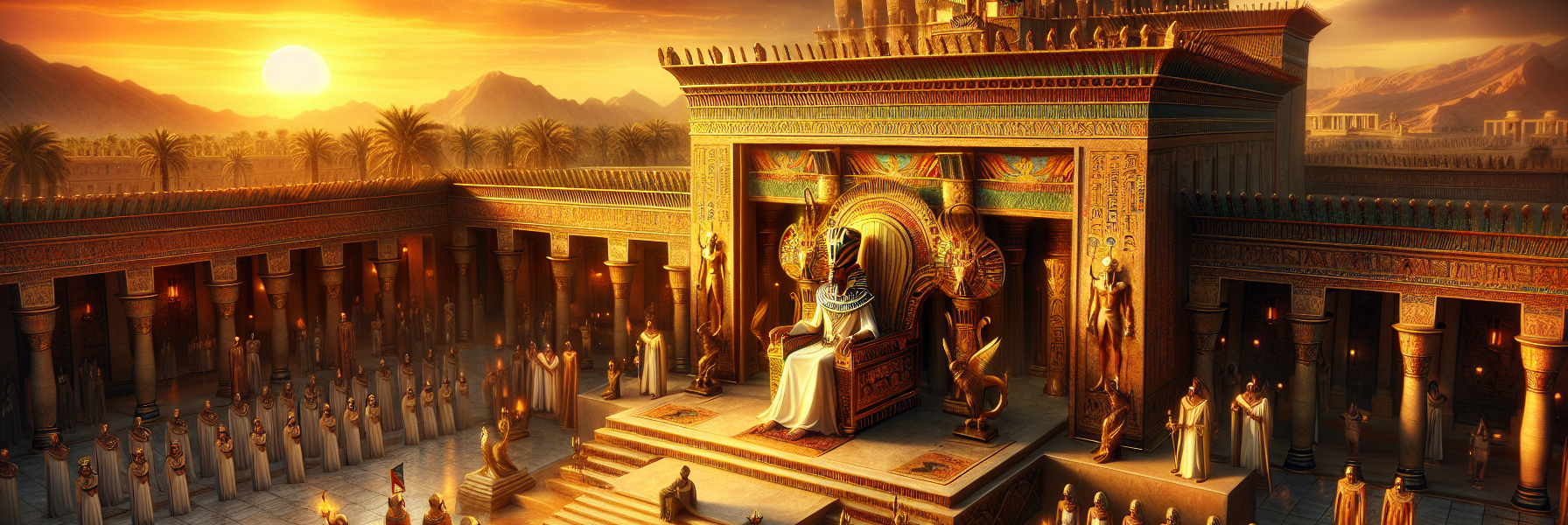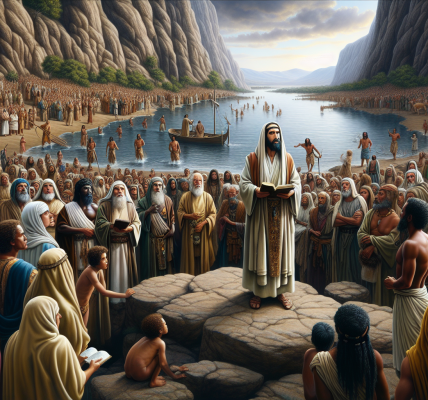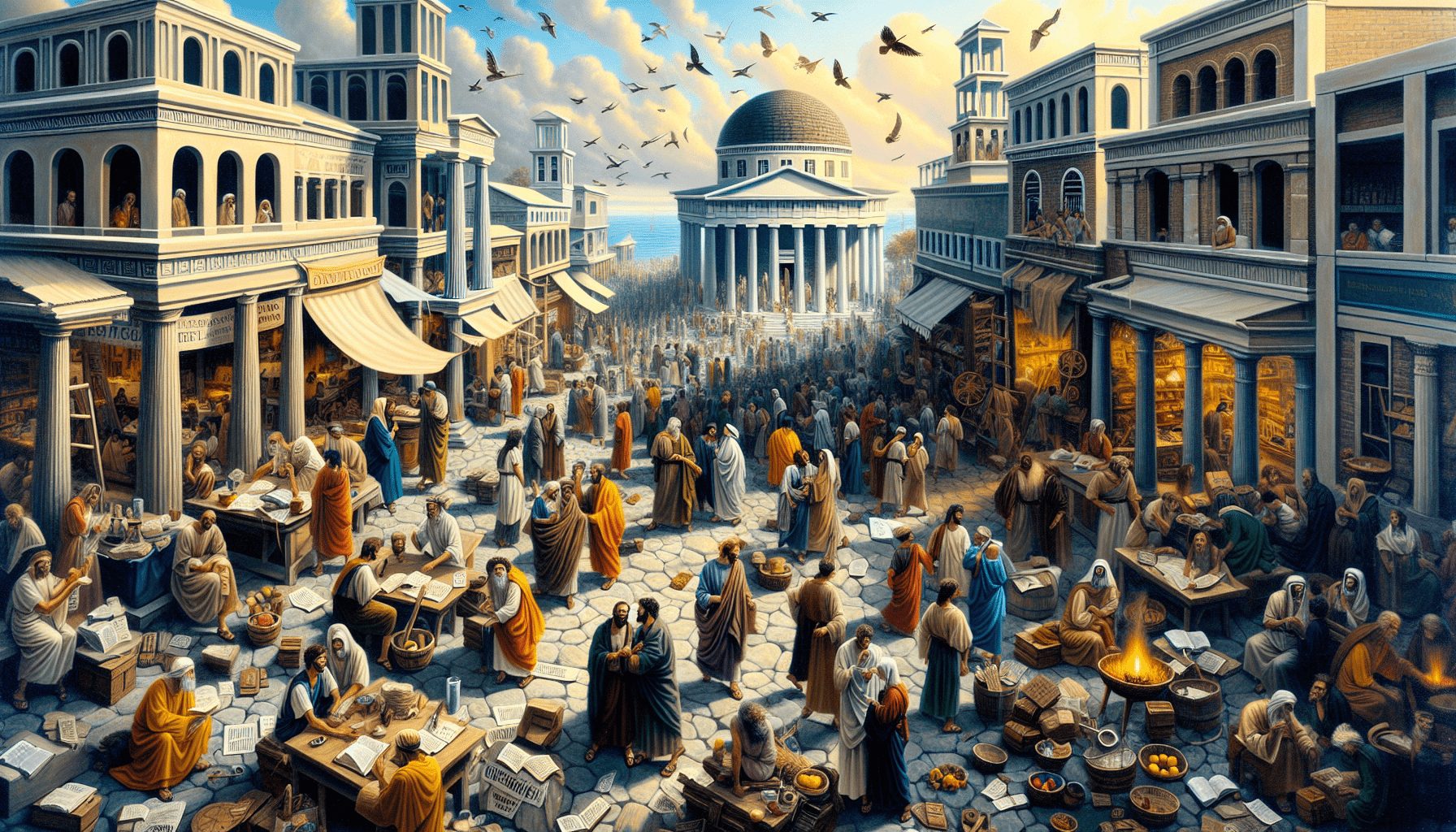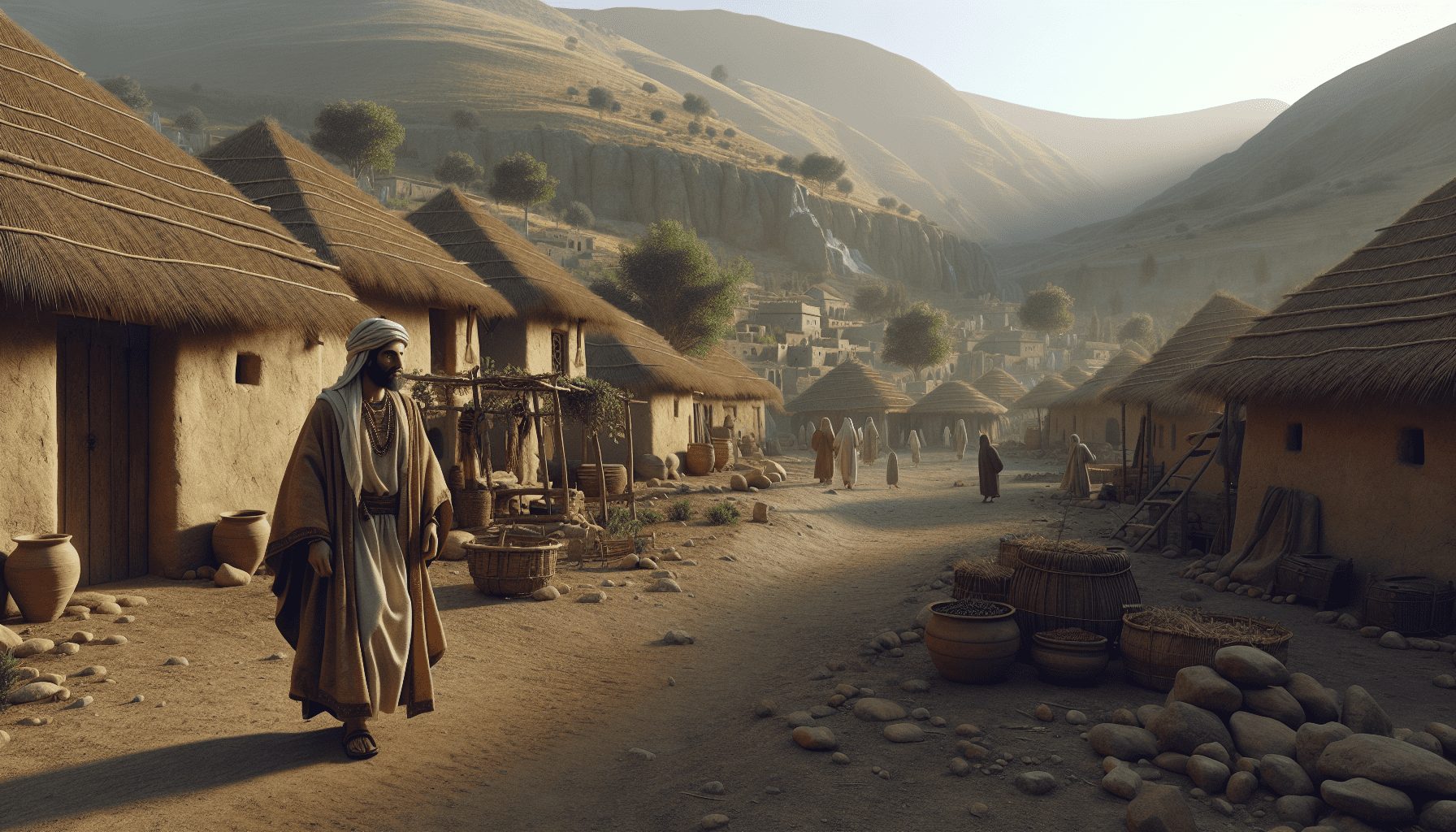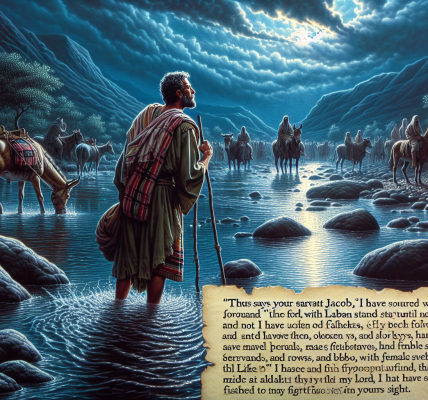**The Dreams of Pharaoh: Joseph’s Rise to Power**
The golden sun blazed over the land of Egypt, its scorching rays beating down upon the fertile banks of the Nile. In the grand palace of Pharaoh, ruler of the mightiest kingdom on earth, unease stirred like the hot winds of the desert. For on this night, the king had dreamed dreams—visions so vivid and troubling that they shattered his peace like a clay pot dashed upon stone.
Pharaoh sat upon his ivory throne, his brow furrowed beneath the weight of the double crown of Upper and Lower Egypt. His advisors—wise men, magicians, and priests—stood before him, their faces etched with fear and confusion. They had been summoned at dawn, for the king demanded interpretation.
“I have dreamed,” Pharaoh declared, his voice echoing through the pillared hall, “and there is no one who can explain it to me.”
In his first dream, he had stood by the Nile, and from its waters emerged seven cows, sleek and fat, their hides glistening like polished bronze. They grazed upon the reeds along the riverbank. But then, seven other cows, gaunt and scarred by famine, rose after them—ugly and thin, such as he had never seen in all the land. The wretched beasts devoured the fat cows, yet remained as starved as before.
Pharaoh awoke in a sweat, his heart pounding. But when sleep took him again, another vision came: seven plump ears of grain, golden and full, swayed upon a single stalk. Then, seven withered ears, blighted by the east wind, sprouted after them and swallowed the healthy grain.
The magicians whispered among themselves, their charms and incantations useless. The wise men shook their heads, for the dreams were beyond their understanding. The air grew thick with dread, for a king’s uninterpreted dream was an ill omen for the kingdom.
### The Cupbearer Remembers
Then, from the shadows of memory, the chief cupbearer stepped forward. His face flushed with sudden recollection. “Today I remember my faults,” he confessed. “Once, Pharaoh was angry with his servants and imprisoned me and the chief baker in the house of the captain of the guard. There, we each dreamed a dream in one night, and a young Hebrew—a servant of the captain—interpreted them for us. And as he explained, so it came to pass: I was restored to my position, and the baker was hanged.”
Pharaoh’s eyes burned with urgency. “Bring this man to me at once!”
### Joseph Before the King
Messengers raced to the dungeons, where Joseph, now thirty years old, had spent years forgotten in the darkness. But the Lord had not forgotten him. When the prison doors clanged open and the royal summons came, Joseph did not boast. He shaved, changed his garments, and stood before Pharaoh with quiet dignity.
The king studied the Hebrew slave, his piercing gaze searching for wisdom. “I have heard it said that you can interpret dreams,” Pharaoh said.
Joseph’s reply was humble yet firm. “It is not in me. But God will give Pharaoh a favorable answer.”
Then Pharaoh recounted his dreams—the cows, the grain—his voice trembling with the weight of the mystery.
### The Interpretation
Joseph listened, and the Spirit of God revealed the meaning to him. He spoke with authority: “Pharaoh’s dreams are one. God has revealed to Pharaoh what He is about to do.”
His words filled the chamber like a prophet’s decree. “The seven good cows and the seven good ears are seven years of abundance. The seven thin cows and the blighted ears are seven years of famine that will follow. The famine will be so severe that the years of plenty will be forgotten. The dream was doubled because the matter is fixed by God, and He will shortly bring it to pass.”
A heavy silence fell. Then Joseph, moved by divine wisdom, offered counsel: “Now, let Pharaoh select a discerning and wise man and set him over the land of Egypt. Let him appoint overseers to take a fifth of the harvest during the years of plenty. Store the grain under Pharaoh’s authority, to be used during the famine, so that the land may not perish.”
### Joseph’s Exaltation
Pharaoh leaned back, his eyes alight with understanding. “Can we find a man like this, in whom is the Spirit of God?” He turned to his counselors. “Since God has shown you all this, there is none so discerning and wise as you. You shall be over my house, and all my people shall be ruled according to your word. Only in the throne will I be greater than you.”
Before the astonished court, Pharaoh placed his own signet ring upon Joseph’s finger, clothed him in fine linen, and draped a gold chain around his neck. He gave him the name *Zaphenath-Paneah* (“God speaks and lives”) and gave him Asenath, daughter of Potiphera, priest of On, as his wife.
At once, Joseph set to work. He rode in the second chariot, and heralds cried before him, “Bow the knee!” Across the land, storehouses rose like fortresses, filled to the brim with grain.
### The Fulfillment
For seven years, the earth yielded abundance unlike any before. Joseph gathered grain like sand upon the shore. Then, as foretold, the famine came—not only upon Egypt but over all the earth. The people cried to Pharaoh for bread, and he sent them to Joseph, who opened the storehouses. Nations came, their caravans groaning under the weight of gold and livestock in exchange for food.
And so, through dreams and divine wisdom, Joseph—once a slave, once a prisoner—became the savior of Egypt and the surrounding lands. The Lord had turned his suffering into glory, fulfilling the promise that had once seemed but a boy’s foolish dream.
For God had ordained it all.
